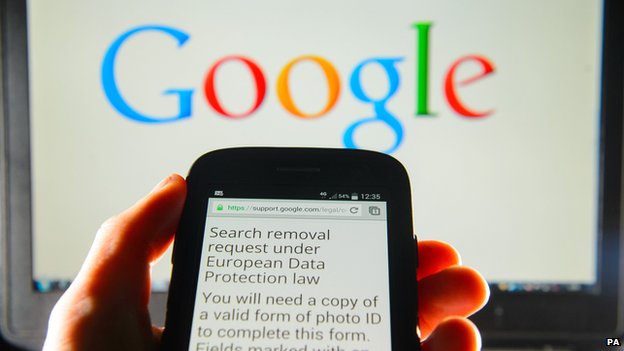
The BBC is reporting that Google is much more reluctant to remove links under the EU ‘right to be forgotten’ ruling than previously thought, even going as far as reinstating as many links as they possibly can, but only after users apply pressure.
Articles from notable news outlets, such as The Guardian, were removed from the search engine, following requests to Google from concerned parties who the articles related to. The Guardian insists that the blacklisting of their pages just because they relate individuals is unethical.
The Guardian’s James Ball expressed his frustration at the ruling’s assault on press freedom.
“The Guardian, like the rest of the media, regularly writes about things people have done which might not be illegal but raise serious political, moral or ethical questions – tax avoidance, for example. These should not be allowed to disappear: to do so is a huge, if indirect, challenge to press freedom. The ruling has created a stopwatch on free expression – our journalism can be found only until someone asks for it to be hidden.”
“There are very few news organisations in the world who are happy to hear their output is being stifled,” he said.
Fortunately, Ball said that the posts have now been reinstated.
“A few automated messages later, the story is back in the headlines – and Google is likely to be happy about that.”

Google has also spoken out to the media, with Peter Barron, head of communications for Google in Europe defending the company’s actions in an interview on BBC Radio 4’s Today programme, highlighting that the whole fiasco has been a”difficult” process.
“We are learning as we go,” he told the BBC.
Barron went on to dismiss some claims that the company has been complying to as many requests as possible to that increase publicity around the ruling.
“Absolutely not,” he said. “We are aiming to deal with it as responsibly as possible.
Google received over 41,000 requests to remove content in the first few weeks following the ruling.
“The European Court of Justice ruling was not something that we welcomed, that we wanted – but it is now the law in Europe and we are obliged to comply with that law.”
Ryan Heath, spokesman for the European Commission’s vice-president, was also available for an interview. He said that;
“Google clearly has a strong interest in making sure that they’re able to work with whatever the legal requirements are, so they position themselves in a particular way over that,”
“It doesn’t come cheap to deal with all of these requests, so they need to find some way to come up with dealing with them.”
He also made it clear that the ruling should not be used by people to “Photoshop their lives”.
This is clearly a hot-button issue, with many media, social network and prominent television personalities criticising either the EU, or Google themselves, for the negative impact of the ruling. We will keep on signal boosting the ongoing coverage, and hopefully one day, with enough support worldwide, the ruling may be repealed.
Sources; BBC, The Guardian
